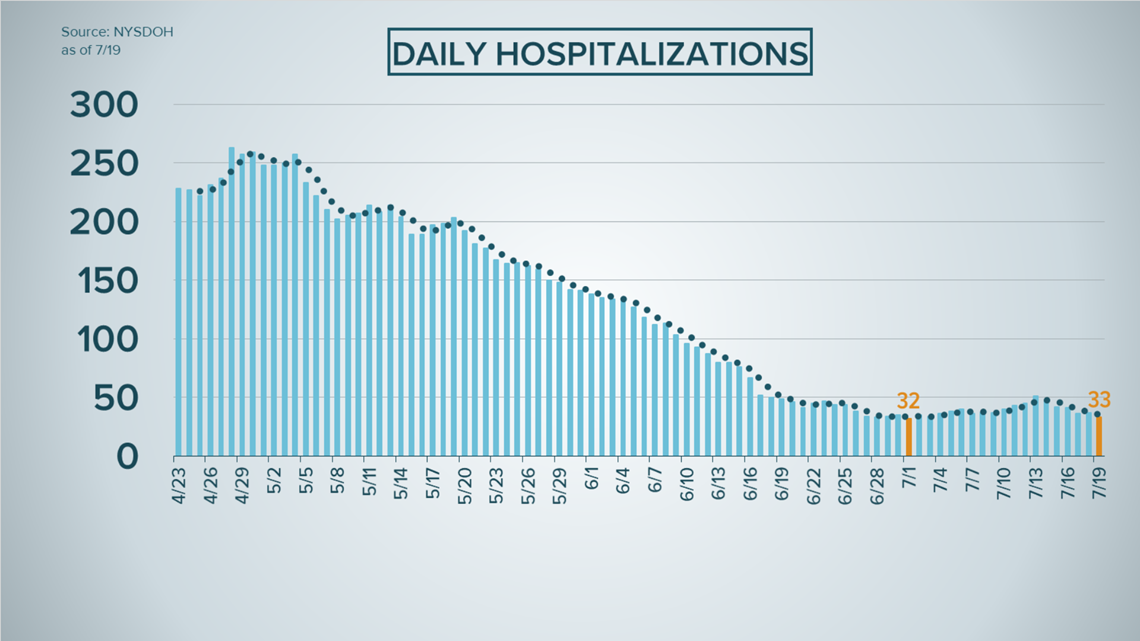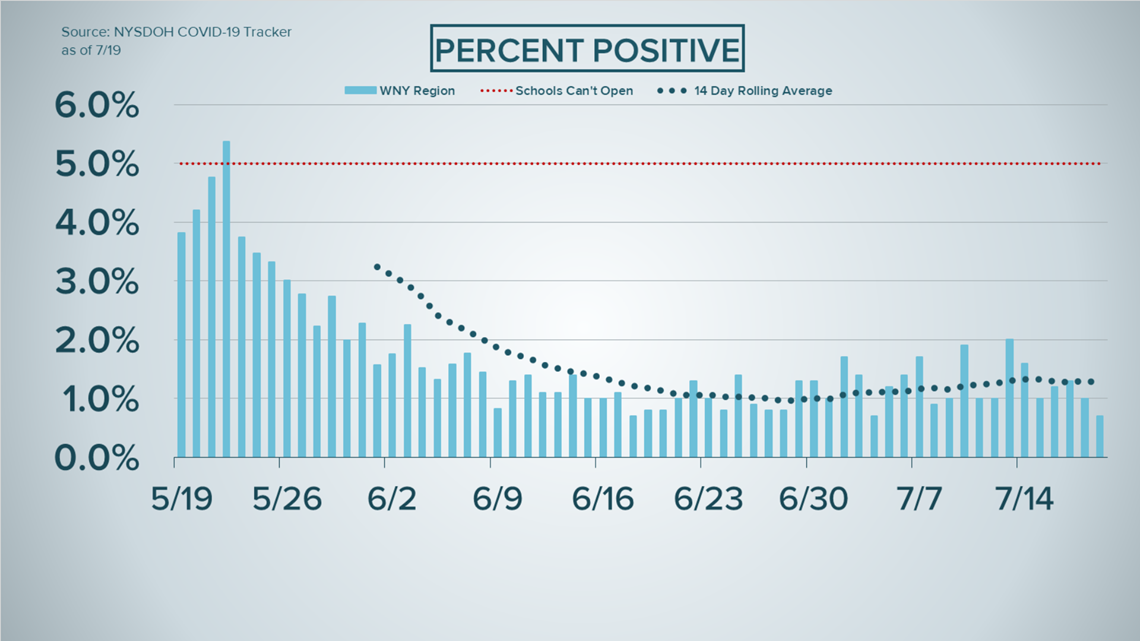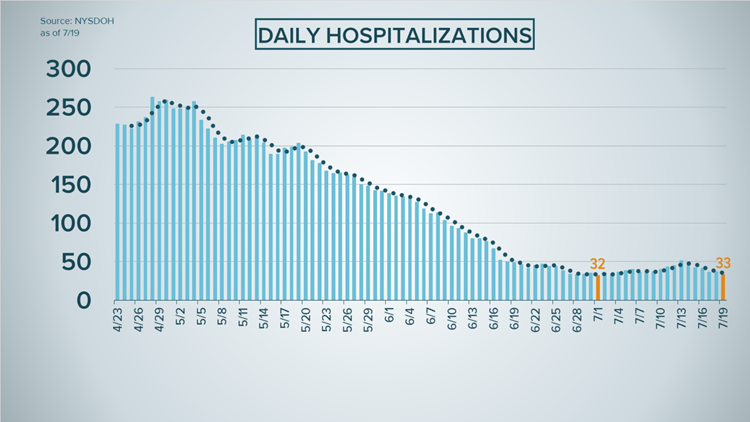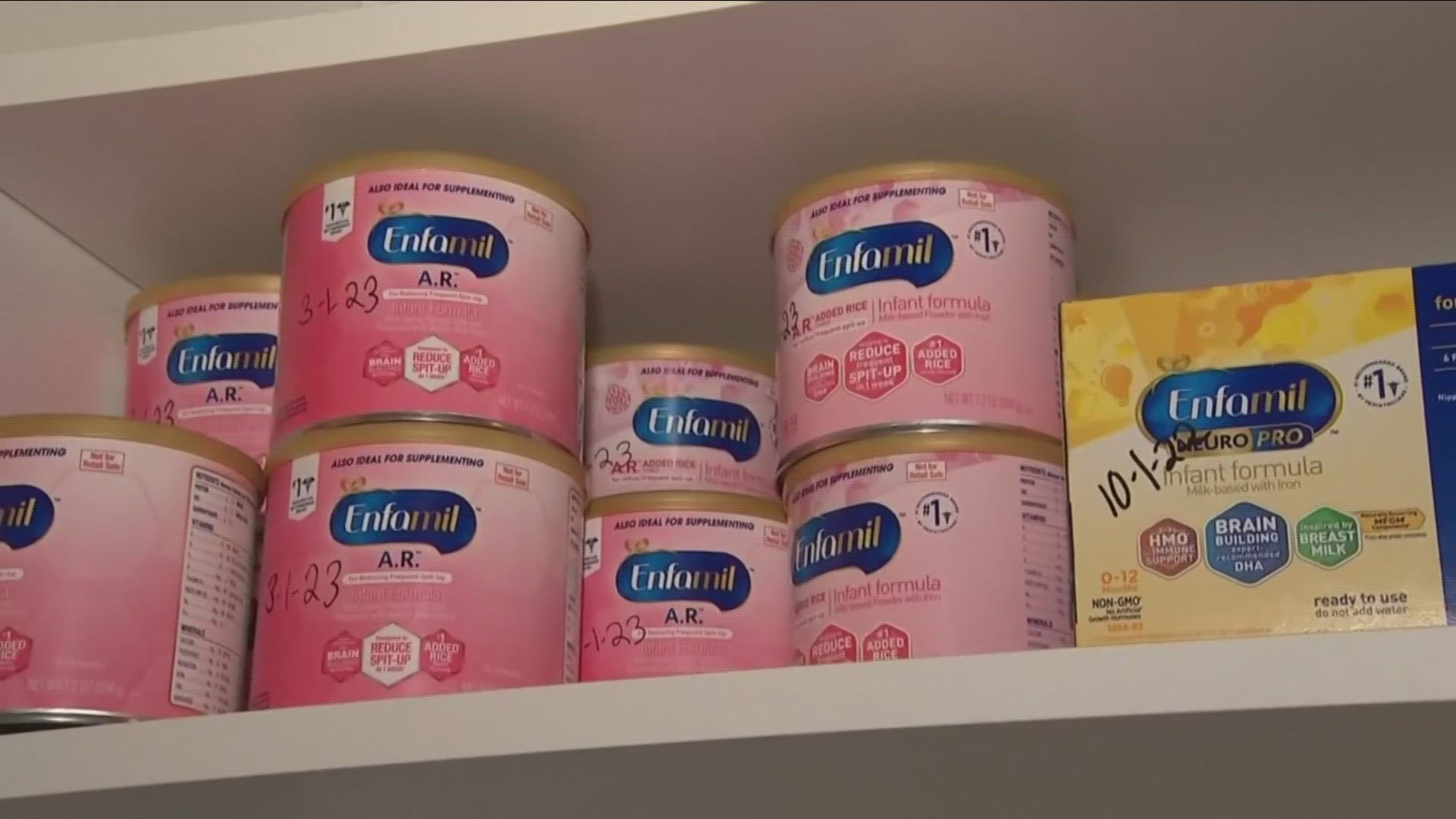BUFFALO, N.Y. — Daily COVID-19 related hospitalizations in the WNY Region dropped to 33 on Sunday, July 19.
The lowest they have been since the pandemic started is 32 on July 1st.
The WNY region consists of Erie, Niagara, Chautauqua, Cattaraugus and Allegany counties.


The percent positive in the WNY Region was 0.7% on Sunday. Out of 1,970 test results, there were 13 positives in the 5 county region. The seven-day rolling average is down to 1.3%.
COVID-19 related hospitalizations continue to trend downward in New York State as well.
Governor Andrew Cuomo announced there were 716 COVID-19 hospitalizations. His office also confirms 519 new coronavirus cases statewide, bringing the total to 407,326.


Human coronaviruses are usually spread through...
- The air by coughing or sneezing
- Close personal contact, such as touching or shaking hands
- Touching an object or surface with the virus on it, then touching your mouth, nose or eyes before washing your hands.
Help stop the spread of coronavirus
- Stay home when you are sick.
- Eat and sleep separately from your family members
- Use different utensils and dishes
- Cover your cough or sneeze with your arm, hot your hand.
- If you use a tissue, throw it in the trash.
Lower your risk
- Wash your hands often with soap and water for at least 20 seconds. If soap and water are not available, use an alcohol-based hand sanitizer.
- Avoid touching your eyes, nose, and mouth with unwashed hands.
- Avoid close contact with people who are sick.
- Clean and disinfect frequently touched objects and surfaces.
If you are 60 or over and have an underlying health condition such as cardiovascular disease, diabetes or respiratory illnesses like asthma or


